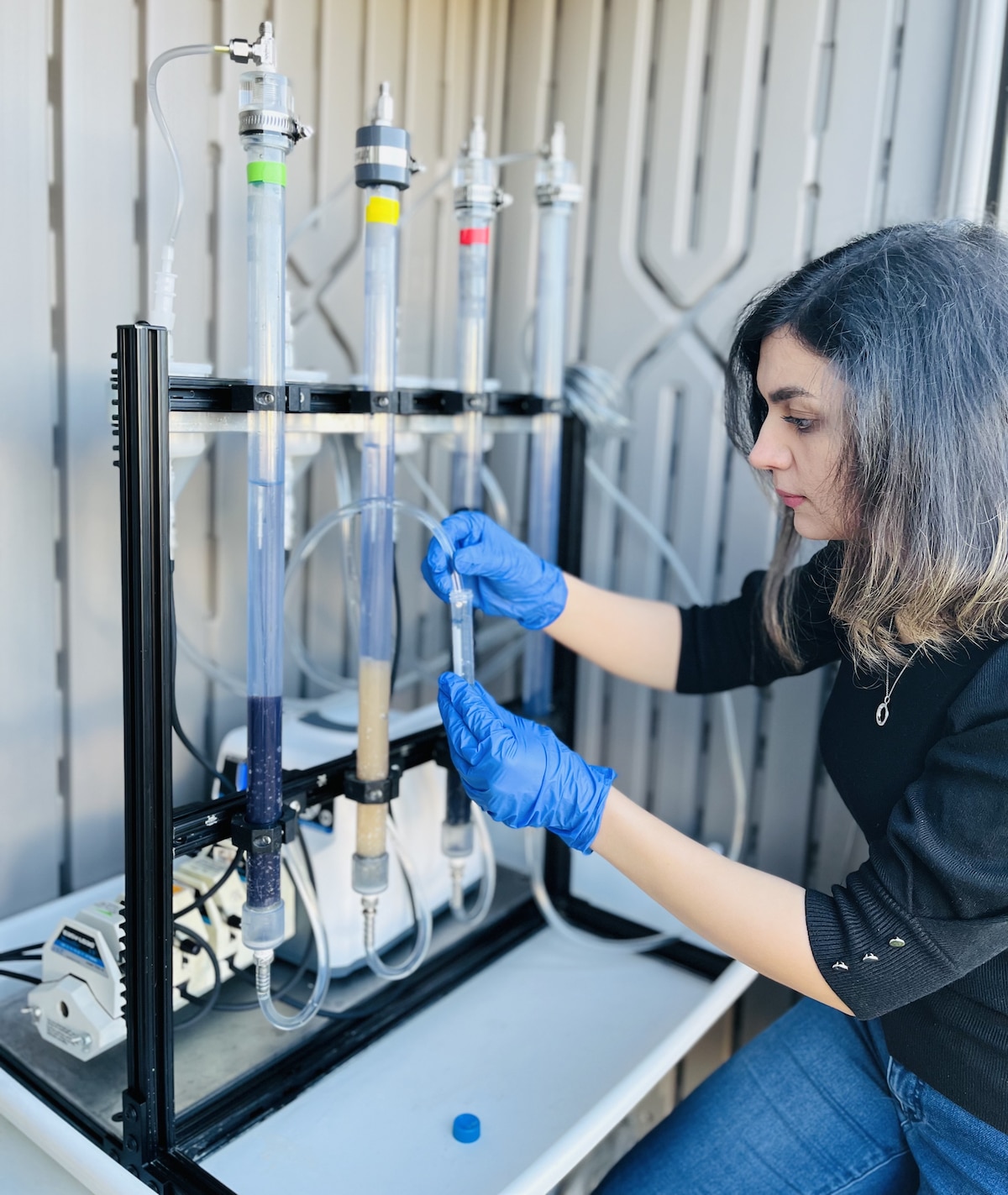Researchers Develop Method to Permanently Destroy Toxic ‘Forever Chemicals’ in Water Supply

 Why you can trust us
Why you can trust us
Founded in 2005 as an Ohio-based environmental newspaper, EcoWatch is a digital platform dedicated to publishing quality, science-based content on environmental issues, causes, and solutions.
Per-and polyfluoroalkyl substances (PFAS) are known as “forever chemicals” because they last in the environment for thousands of years. They are found in a range of products, from firefighting foam to non-stick cookware, cosmetics and raingear, and have made their way into the water supply. They have also been found in the blood of every American who’s been tested.
PFAS end up in drinking water mostly when the products that contain them leach into rivers, lakes, soils and groundwater, which can contaminate wells. PFAS can also be transported through the air into lakes and rivers used to supply drinking water.
But what if PFAS weren’t forever at all?
University of British Columbia (UBC) engineers have come up with a new water treatment that safely, efficiently and permanently removes PFAS from drinking water, according to UBC News.
“Think Brita filter, but a thousand times better,” said UBC chemical and biological engineering professor Dr. Madjid Mohseni, who developed the technology, as UBC News reported.
More than 4,700 PFAS are currently being used in common products and have been linked to a variety of health problems, including heart disease, liver damage, cancer, hormonal disruption, increased risk of thyroid disease and asthma, developmental delays and decreased fertility.
Mohseni and the team of engineers came up with a special adsorbent material that can trap and hold all of the PFAS found in the drinking water supply so that they can be removed.
The scientists then use electro- and photochemical processes to destroy the PFAS. These techniques were developed in Mohseni’s laboratory and detailed in part in a recent paper published in the journal Chemosphere.

“Our adsorbing media captures up to 99 per cent of PFAS particles and can also be regenerated and potentially reused. This means that when we scrub off the PFAS from these materials, we do not end up with more highly toxic solid waste that will be another major environmental challenge,” explained Mohseni, as reported by UBC News.
The commonly used ion-exchange and activated carbon water treatment systems on the market either don’t capture all types of PFAS or take longer to trap them, Mohseni said.
These filters are mostly able to target what are called “long-chain” PFAS, but after the latest bans, manufacturers have started making “short-chain” types, The Guardian reported.
“[Those versions] are equally toxic and they stay in the water better. And as a result, current technologies like activated carbon really aren’t as effective,” Mohseni said, as reported by The Guardian.
And when filter cartridges, such as those used in home filtration systems, are discarded, they can end up back in the environment.
“In many cases, people throw this in the garbage and it finds its way into the landfill. So even in industry, they do that as well… So, the PFAS is taken out of the water but then put in the landfill and over time that also leaches out again back to the groundwater,” Mohseni said, as the Vancouver Sun reported.
Even in places where PFAS are no longer being manufactured, like Canada, Mohseni said they can continue to leach into our bodies or the environment from consumer products.
The most common route of exposure is through consumer products and food, but exposure is also possible through contaminated drinking water.
“Our adsorbing media are particularly beneficial for people living in smaller communities who lack resources to implement the most advanced and expensive solutions that could capture PFAS. These can also be used in the form of decentralized and in-home water treatments,” Mohseni said.
The UBC research team is getting ready to try out the new water treatment technology around B.C.
“The results we obtain from these real-world field studies will allow us to further optimize the technology and have it ready as products that municipalities, industry and individuals can use to eliminate PFAS in their water,” Mohseni said, as reported by UBC News.
The best way to avoid contamination and the health risks associated with PFAS is to stop using them altogether. “One way to fix that is to do what we’ve done,” said Mohseni, as The Guardian reported. “The other way to fix this, and this would be exciting, is for industry not to use the chemicals any more.”
Subscribe to get exclusive updates in our daily newsletter!
By signing up, you agree to the Terms of Use and Privacy Policy & to receive electronic communications from EcoWatch Media Group, which may include marketing promotions, advertisements and sponsored content.

 233k
233k  41k
41k  Subscribe
Subscribe 




